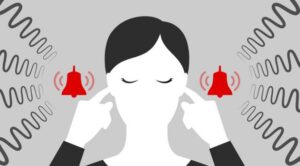Hearing aids come in many shapes and sizes. Behind the ear or in the ear, large or small… beige, black, or blue. What does an audiologist consider when recommending a hearing aid style for your ear?
Your specific type and degree of hearing loss, individual anatomy, and personal needs have everything to do with it.
HEARING LOSS
Does the loss originate from the inner ear (the cochlea)? Is it fluid buildup in the middle ear? A hole in the eardrum? From a structural anomaly of the ear? Is it a combination of some or all of these factors? Is your hearing loss mild? Severe? Low frequency? High frequency? All of the above? The way sound is delivered to your ear affects how much you benefit from the device. Depending on the frequency and volume of sound wave we hope to send into your ear, we may be at risk of squealing feedback or sound waves escaping from the ear that cause you to lose some benefit. If it’s being sent out into the world, it’s not being sent into your auditory system! We treat low frequency loss differently than high frequency loss due to the different acoustic factors at play. The amount of volume of amplified sound also changes what hardware we need in order to address you hearing needs. Bigger hearing aids can typically deliver more power than tiny devices.
ANATOMY
The size and shape of your ear can also affect how the sound is received. Some people have particularly tiny ear canals and some have unusually large canals following surgeries. This can dramatically change how a hearing aid works. From eliminating feedback to delivering the desired volume at each frequency, adjustments are made to ensure optimal hearing help. Think about this: If you yell or sing in a tiny closet vs. a very large auditorium, the effect is very different. We can program a hearing aid based on your hearing test, but if we don’t take into account they type of “room” your ear canal provides, we are missing an important element.
PATIENT NEEDS AND WANTS
After your audiologist determines the ideal style and type of hearing aid for your particular hearing loss and anatomy, there are personal preferences to consider. Are there two styles of hearing aid that are appropriate for you, and do you have a preference for how one looks? Is connecting via Bluetooth important to you? What demands are placed on your hearing throughout the week, and where do you struggle the most? Do you want rechargeable hearing aids or disposable batteries? These considerations may affect what manufacturer or type of hearing aid your audiologist recommends.
Your Audiologist will work with you to evaluate your hearing loss and anatomy and explore your personal needs and preferences. Your provider will use their expertise to guide you toward the hearing aid that will maximize your benefit and comfort as you integrate hearing healthcare into your life full of sound.
To begin the discussion, contact an Audiologist at The Hearing Center of Dallas Ear Institute to schedule a Hearing Test and Hearing Consultation.



